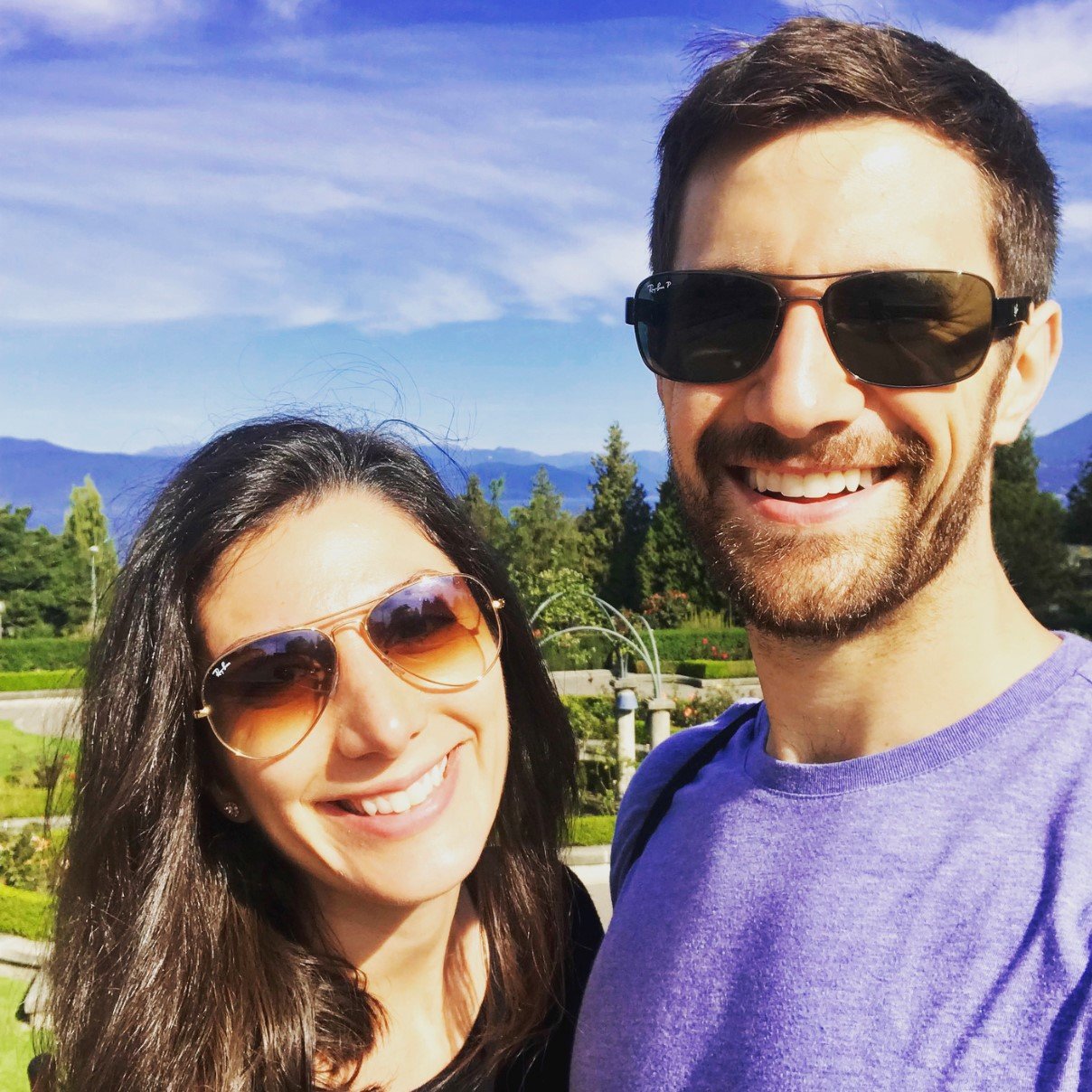Local Eco-nomics: Livin’ La Vida Verde
Royal Oak residents Michelle and Colin talk trash about...well...trash! After moving back to Michigan from Chicago in early 2020 they set their sights on more sustainable ways of life which include composting, eliminating single-use plastics, and supporting local businesses that also live green.
Introducing Michelle and Colin.
1) Was there a defining moment that ignited your eco-journey?
Our journey has been a pretty gradual one, but if I had to pinpoint a defining moment, I think it was when we moved back to Michigan from Chicago in early 2020. Having a yard for the first time in years, combined with having lots of free time due to the pandemic, we decided to try our hand at composting. We realized that we create quite a bit of food waste from regular items like banana peels, eggshells, bell pepper stems, coffee filters & grounds, etc. Diverting all our food waste gave us a real visual of how we could make an actual impact as individuals. It became immediately clear that our trash bin didn't fill up as fast, and thus the bin didn't need to be taken out as much (which is also a win!). With our impact as motivation, we decided to make an effort to do more than just the "easy" stuff we were already doing, like bringing our own grocery bags or using reusable water bottles.
2) How do you set yourself up for success in meeting your eco-goals?
A few things come to mind here!
Plan ahead. For example, we make grocery lists in advance so we don't buy things that we already have, and we plan out when we might want to bring any type of reusable (bottle, bag, silverware, etc.).
Follow the cardinal rule: "the most sustainable option is the one you already have." We've been very conscious about using up products we already have before switching to more sustainable ones. We also both despise shopping, so avoiding overconsumption comes naturally to us!
Accept imperfection. This one is not always easy, but we try to give ourselves grace and understand that we can only do so much at once. As long as we're making an effort and making progress, that's really all we can ask of ourselves.
3) What have you found to be the biggest deterrent while making these changes?
Plastic is everywhere. It's just the default for so many products and types of packaging, and some days it feels completely unavoidable. I wish we didn't have to go so far out of our way to buy products made with sustainable materials and packaging.
4) Do you have some fantastic resources to share, e.g. books, businesses, blogs?
Yes! Something that we've found super inspiring is the number of zero waste shops and refilleries that are opening up in Southeastern Michigan. There's Walking Lightly in Ferndale (which we learned about thanks to you!), 86 Plastic in Troy, and Red Oak Refillery in several locations. It's amazing to be able to fill our own containers with the products we need, create less waste, and support awesome local business owners. On the book front, I really enjoyed reading The Intersectional Environmentalist by Leah Thomas. The book provides insight into the interconnection between various movements--environmental, feminist, civil rights, and more. It helped to give me perspective on how environmental issues affect people and made me feel even more motivated to do better.
5) What are some interesting facts you have uncovered since you started thinking green?
One of my favorite parts about having an eco-friendly Instagram account is creating infographics to share information! Here are some topics I've covered so far (all references are shown in the infographics and not repeated here):
One study projects that about 12 billion metric tons of plastics will end up in landfills or in the natural environment by 2050. That's equal to about 35,000X the weight of the Empire State Building! Plastic is ending up on the streets and in our waterways--we definitely need to make some changes so that this projection doesn't become a reality.
Food waste accounts for over 20% of the total municipal solid waste generated. Composting helps divert wasted food from landfills and turn it into useful fertilizer. Plus, composting allows the food to break down aerobically (with oxygen). In this case, the process doesn't produce methane as it would if it broke down anaerobically (without oxygen) in a landfill.
Simple choices at the grocery store can make a big impact. Looking at dairy, almond, oat, soy, and rice milks; dairy milk has the worst impact in ALL categories including land use, water use, emissions, and eutrophication.
On a per-bag basis, grocery bags made from sustainable materials like paper or cotton actually have a more detrimental environmental impact than plastic bags. However, this impact is offset when the bags are reused as much as possible. That's why it's SO important to commit to actually reusing our reusable bags!
6) Bonus question: do you have anything else you would like to share?
I'd love to encourage people to start taking small steps towards a sustainable lifestyle. Focusing on food waste was a great way for us to start because we cook a lot, but you can focus on whatever interests you! Consider sustainable brands when buying new cleaning products, try to incorporate more plant based meals, check out your local zero waste shop, volunteer at a local cleanup, learn more about recycling, focus on mending or upcycling clothing...the opportunities are endless. And truly, no action is too small. Individuals can make a difference, and it feels great to get started.
Submitted by Allison Posner, Naturalist, July 2022

